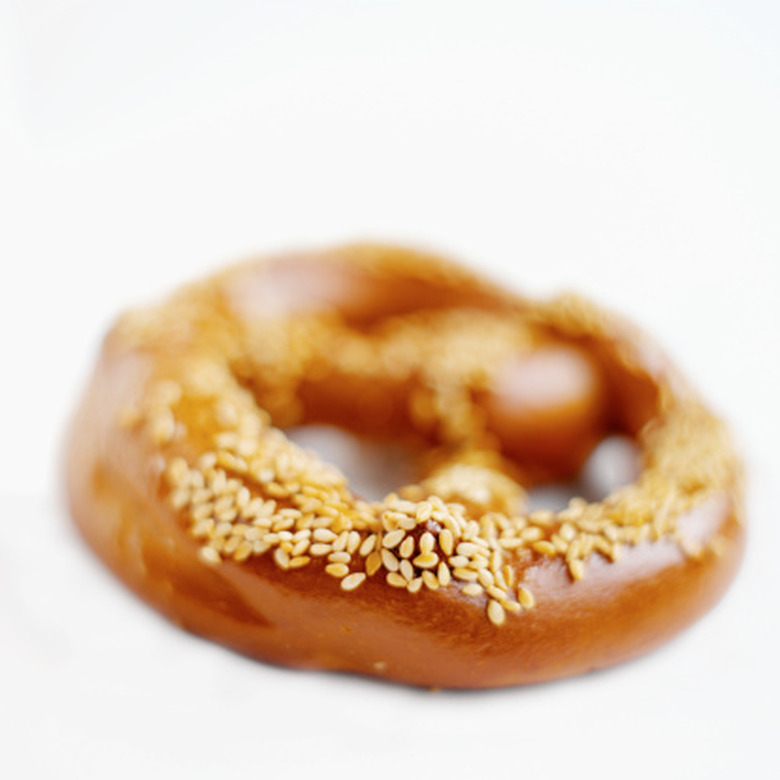Black Vs. White Sesame Seeds
Sesame seeds are small, oily seeds that are native to Africa, Asia and the Middle East. They are used in many recipes for savory and sweet foods and baked goods. The white sesame seed is more commonly available in grocery stores, but black sesame seeds are becoming more common in North American cuisine and households.
Shell
Black sesame seeds are not hulled, meaning they retain their shells. White sesame seeds are hulled, meaning their shells are removed. There are a wide variety of each black and white sesame seeds, and white sesame seeds have black, red or brown hulls. Because black sesame seeds retain their hull or shell, they are not always a uniform black color. They can be light brown, dark brown or black, while white sesame seeds are always white once hulled.
- Sesame seeds are small, oily seeds that are native to Africa, Asia and the Middle East.
- There are a wide variety of each black and white sesame seeds, and white sesame seeds have black, red or brown hulls.
Varieties
Even though black sesame seeds are not hulled and white sesame seeds are hulled, that does not mean that white sesame seeds are always just black sesame seeds with no shells. They are two different varieties of sesame seed, which is the seed of the flowering sesame plant.
Flavor
Black sesame seeds and white sesame seeds have different flavors and textures, although because the seeds are so small the flavor differences can be difficult to notice. Black sesame seeds are crispier with a more nutty and smoky flavor, while white sesame seeds are soft with a duller but sweet flavor.
Uses
Black sesame seeds are primarily used for decoration or added flavor on a variety of foods, including sushi, Asian dishes, pastries, pasta dishes and even cupcakes, sometimes in addition to white sesame seeds. Foods that are made from sesame seeds, such as sesame seed candy or tahini, which is a sesame seed paste, are only made from white sesame seeds. Sesame oil comes from both types of seeds, and is used in cooking, medicine and for skin care.
- Even though black sesame seeds are not hulled and white sesame seeds are hulled, that does not mean that white sesame seeds are always just black sesame seeds with no shells.
- Black sesame seeds and white sesame seeds have different flavors and textures, although because the seeds are so small the flavor differences can be difficult to notice.
Nutrition
Black sesame seeds and white sesame seeds are similar in nutrition, although because black sesame seeds retain their hulls they are higher in calcium. Both seeds are a good source of zinc, riboflavin, niacin and thiamine, along with iron.
